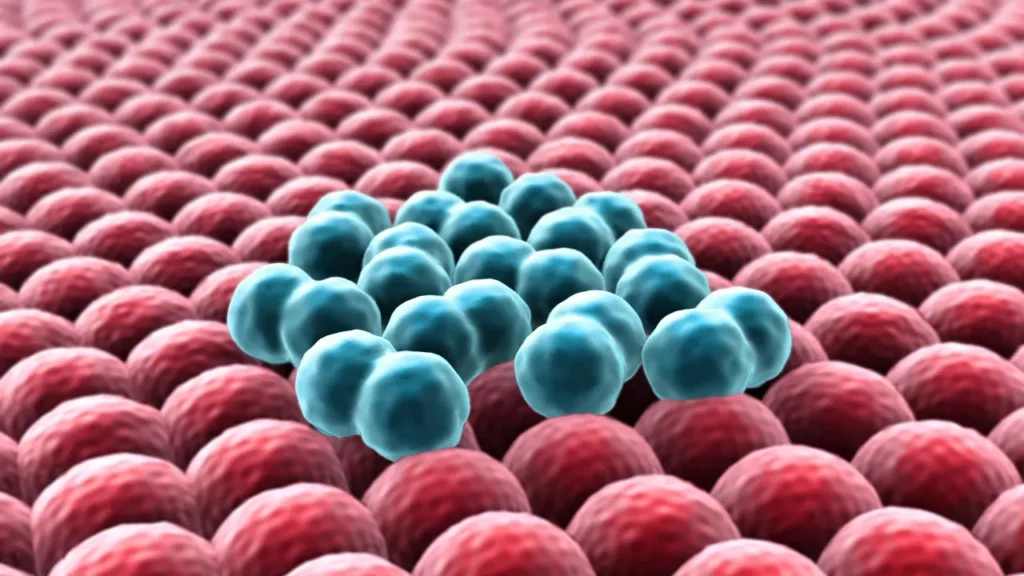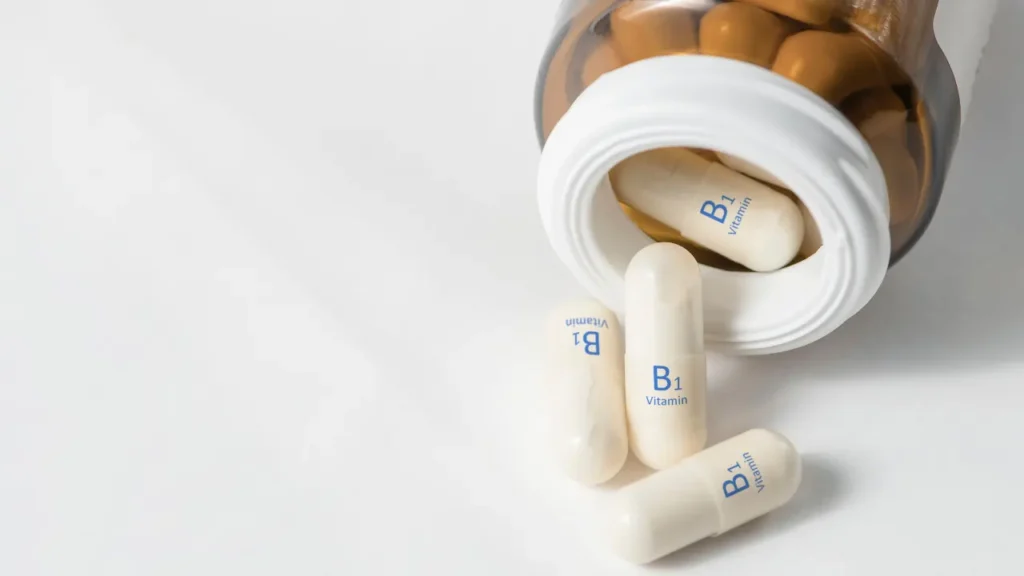A Japanese native plant called ashitaba (Angelica keiskei) has become more well-known recently as a dietary supplement. It is a highly sought-after product in the health and wellness sector due to its distinctive chemical make-up and several health advantages. The nature of Ashitaba, its health advantages, ideal dosage, adverse effects, potential drug interactions, and appropriate usage will all be covered in this article.
You May Also Like:
CBD for Concentration: 3 Epic Benefits that Boost Your Focus
CBD for Concentration: The Productivity Hack for Energy and Focus
Ashitaba: Benefits, Dosage, Side Effects, Drug Interactions, and Other Important Information is an original (NootropicsPlanet) article.
Nature of Ashitaba
Ashitaba, a member of the Apiaceae family, is referred to as “longevity herb” or “tomorrow’s leaf” in Japan. The plant has broad, lobed, green leaves and can reach a height of 120 cm. The plant’s stems and leaves contain a variety of bioactive substances, including flavonoids, coumarins, and chalcones, which contribute to its health advantages.
Health Benefits of Ashitaba
- Anti-aging:
Ashitaba includes chalcones, strong antioxidants with anti-aging benefits. Antioxidants aid in the body’s defense against dangerous free radicals that result in oxidative stress and cell damage. Hence, Ashitaba is a potent anti-aging vitamin.
Ashitaba contains a variety of nutrients, including calcium, iron, potassium, vitamins A, B1, B2, and C, as well as vitamins E and B1 which could improve your immune system.
- Anti-inflammatory Qualities:
Coumarins, which are present in ashitaba, have anti-inflammatory qualities. The body’s normal response to damage or infection is inflammation, but persistent inflammation can lead to some disorders. This anti-inflammatory quality reduces the occurrence of chronic inflammation in the body.
- Improves Cardiovascular Health:
Chalcones, which are found in Ashitaba, aid in reducing blood cholesterol levels. Atherosclerosis, heart attacks, and stroke are just a few of the cardiovascular problems that can be caused by high cholesterol.
- Good for Digestion:
Ashitaba includes dietary fibers that support bowel regularity and avoid constipation, which helps to maintain digestive health.
- Anti-Cancer Properties:
Several bioactive substances contained in Ashitaba, including coumarins, chalcones, and flavonoids, have been reported to have anti-cancer activities.

Chemistry of Ashitaba
Ashitaba has numerous bioactive substances, including flavonoids, chalcones, and coumarins, which contribute to its health advantages. Chalcones are a class of polyphenolic substances that have a strong antioxidant effect. The main chalcone in Ashitaba, xanthoangelol, is what gives the plant its various health advantages. Another class of polyphenolic chemicals with anti-inflammatory effects is the coumarins. Scoparone is the main coumarin found in Ashitaba. Along with flavonoids, Ashitaba contains apigenin and luteolin, both of which have anti-cancer potential.
Physiological Mechanism of Action of Ashitaba
It is not entirely clear how Ashitaba works physiologically. However, research has found many routes that may contribute to its positive effects on health.
It has been demonstrated that the chalcones of Ashitaba, especially xanthoangelol, exhibit strong antioxidant properties. It has been discovered that xanthoangelol activates the Nrf2 pathway, which controls the body’s antioxidant defense mechanism. Numerous antioxidant enzymes are upregulated as a result of this pathway’s activation, aiding the body’s defense mechanism against dangerous free radicals.
Scoparone is one of Ashitaba’s coumarins that has been discovered to have anti-inflammatory properties. Interleukin-1 beta (IL-1 beta) and tumor necrosis factor-alpha (TNF-alpha) are two pro-inflammatory cytokines that have been demonstrated to be inhibited by scoragone based on in vitro research.
It has been discovered that the flavonoids from Ashitaba, particularly luteolin and apigenin, have anti-cancer effects. In vitro and animal experiments reveal that luteolin causes apoptosis in cancer cells and prevents the growth and dissemination of cancer cells. Additionally, apoptosis and growth inhibition of cancer cells are also shown by apigenin.

Optimal Dosage of Ashitaba
For Ashitaba, there is no standard dosage to be advised up to date. However, the ideal dosage can change based on some variables, including age, gender, weight, and health state. It is best to start with Ashitaba at a low dosage and gradually raise it over time. For instance, 1-4 gm per day is a healthy dose range to be started with.
Side Effects of Ashitaba
Consuming Ashitaba is usually considered to be harmless, and there are no documented serious adverse effects. However, a few individuals could develop minor side effects like nausea, diarrhea, and abdominal pain. If you develop any side effects, Ashitaba supplements should be stopped immediately, and you should speak with your doctor.

Potential Substance Interactions with Ashitaba
Although Ashitaba is typically safe to consume, several drugs may interact with it. If you are currently on any medicine, it is imperative to speak with your doctor before taking Ashitaba. The following are some possible drug interactions with Ashitaba:
Antiplatelet and anticoagulant medications may interact with Ashitaba. Aspirin is an antiplatelet medicine that prevents platelets from clumping together to create blood clots, whereas warfarin is an anticoagulant that prevents blood clots from forming. It has been discovered that Ashitaba’s chalcones have antiplatelet activity, which means they may intensify the effects of antiplatelet medications and raise the risk of bleeding. Similar to this, coumarins from Ashitaba may intensify the effects of anticoagulants and raise the likelihood of bleeding.
Responsible Uses of Ashitaba
For Ashitaba to be used safely and effectively, it must be used in a responsible manner. Before using Ashitaba, like with any dietary supplement, it’s vital to speak with your doctor, especially if you have any ongoing medical conditions or are currently on any medications. It is advised to start with a modest dosage and increase it gradually over time.
It is also critical to get Ashitaba from reliable vendors. As Ashitaba’s safety during pregnancy and breastfeeding has not been verified, pregnant women and women who are breastfeeding should avoid taking it. Additionally, it’s important to follow the Ashitaba dosage instructions exactly because overconsumption can have negative side effects. Last but not least, Ashitaba shouldn’t be taken in place of medical care, and anyone with a chronic medical condition should talk to their doctor before using Ashitaba. Overall, responsible use of Ashitaba can aid in guaranteeing the health supplement’s effectiveness and safety.
Ashitaba:
Conclusion
Angelica keiskei, or Ashitaba, emerges as a unique and nutrient-rich plant packed with various nutrients, including calcium, iron, potassium, vitamins A, B1, B2, and many others. Ashitaba is renowned for its potential health benefits as an antioxidant, anti-inflammatory agent, and immune-strengthening properties. Moreover, other components like chalcones, coumarins, and flavonoids also reportedly have anti-cancer properties.
If you have any plans to incorporate Ashitaba into your diet, you should first find out if you are a suitable candidate by checking your allergies and existing medications. Seek advice from doctors as they can provide valuable insights into the potential benefits and considerations associated with integrating Ashitaba into a well-rounded and health-conscious lifestyle.

References:
- The anti-inflammatory potential of Angelica keiskei Koidzumi (Ashitaba) extract in vitro and in vivo. Retrieved from https://www.ncbi.nlm.nih.gov/pubmed/19010371
- . Dietary Angelica keiskei causes apoptosis and decreases telomerase activity in DU145 and PC3 human prostate cancer cells. Retrieved from https://www.liebertpub.com/doi/10.1089/jmf.2011.1922
Important Note: The information contained in this article is for general informational purposes only, and should not be construed as health or medical advice, nor is it intended to diagnose, prevent, treat, or cure any disease or health condition. Before embarking on any diet, fitness regimen, or program of nutritional supplementation, it is advisable to consult your healthcare professional in order to determine its safety and probable efficacy in terms of your individual state of health.
Regarding Nutritional Supplements Or Other Non-Prescription Health Products: If any nutritional supplements or other non-prescription health products are mentioned in the foregoing article, any claims or statements made about them have not been evaluated by the U.S. Food and Drug Administration, and such nutritional supplements or other health products are not intended to diagnose, treat, cure, or prevent any disease.


